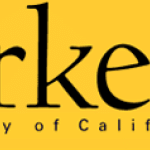- Settore: Education
- Number of terms: 4017
- Number of blossaries: 0
- Company Profile:
A hypothetical electrically neutral supersymmetric particle. The superpartners of the photon, Z-boson, and Higgs Boson actually get blended together. These particles are called as neutralinos.
Industry:Physics
an uncharged, weakly interacting lepton, most commonly produced in nuclear reactions such as those in the sun. There are three known flavors of neutrino, corresponding to the three flavors of leptons. Recent experimental results indicate that all neutrinos have tiny masses.
Industry:Physics
If neutrinos have mass, it is possible for them to convert from one flavor to another, and back again. This process is known as neutrino oscillation. If neutrinos oscillate from a flavor that is detectable into a flavor that is more difficult to detect, it may appear that the neutrinos have disappeared. This is a possible solution to the solar neutrino problem.
Industry:Physics
One of the constituents of atoms. Along with the proton, the neutron is found in the nuclei (centers) of atoms. Neutrons have no electric charge, and are composed of two down quarks and an up quark.
Industry:Physics
A proposal for a next-generation linear collider made by an international collaboration based at SLAC.
Industry:Physics
If a process is equally probable when the coordinates of space are reflected (as in a mirror), it is said to have parity symmetry.
Industry:Physics
The constituents of protons and neutrons are quarks, gluons and anti-quarks. They are collectively known as partons.
Industry:Physics
These functions parameterize the composition (quarks, anti-quarks and gluons) of various hadrons. They describe the probability of finding a given constituent with a given momentum.
Industry:Physics
The gauge boson that mediates the force of electromagnetism. The photon is the quantum of light.
Industry:Physics
Pions are the lightest mesons. They are composed of up quarks, down quarks, and their anti-quark counterparts. Pions of charge +1, -1, and 0 are denoted pi <sup>+</sup>, pi <sup>-</sup>, and pi <sup>0</sup>, respectively.
Industry:Physics
